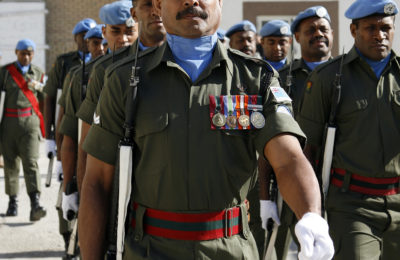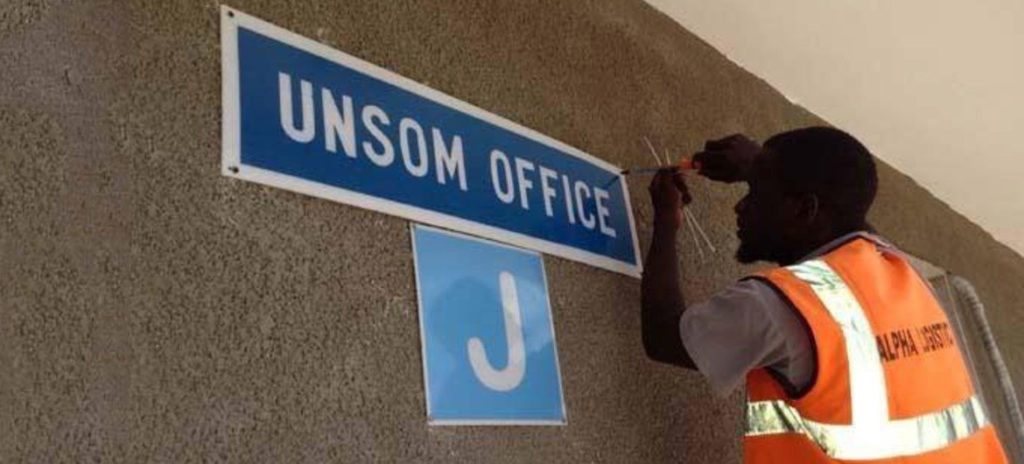In addition to peacekeeping operations, the UN operates special political missions (SPMs) engaged in conflict prevention, mediation, and post-conflict peacebuilding around the world.
Authorized by the UN Security Council, SPMs are tasked with an array of responsibilities, including supporting political dialogue and reconciliation processes, facilitating free and fair elections, monitoring human rights violations, coordinating international development and humanitarian assistance, and encouraging the development of effective rule of law institutions.
Funded by Member State dues, SPMs account for more than one-fifth of the UN regular budget.
AFGHANISTAN
First deployed in 2001 after the U.S. invasion, the UN Assistance Mission in Afghanistan (UNAMA) has supported a number of activities critical to the country’s stability and development over the years. In the wake of the Taliban’s seizure of power in August 2021, the UN’s work in Afghanistan has become significantly more complicated. However, the UN remains focused on coordinating the delivery of critical humanitarian and development assistance to Afghan civilians, who are currently experiencing historic levels of economic dislocation and food insecurity.
The UN Development Programme (UNDP) has worked to avert the collapse of the country’s health system by directly paying the salaries of 25,000 doctors, nurses, and other health care workers across 2,200 health facilities, thereby skirting Taliban authorities. Expanding on this initiative, the UN has established a trust fund to provide salaries to other public sector workers—such as teachers—again through the private banking system or direct transfers, rather than channeling funds through the Taliban-led government. In addition to these efforts, the UN is working to respond to the broader humanitarian crisis: the World Food Programme (WFP) is scaling up operations to provide food aid to more than 23 million people facing acute food insecurity this year, the UN Children’s Fund (UNICEF) is working to provide clean drinking water to 11.5 million people and measles vaccines to 10.5 million children, and the UN Refugee Agency (UNHCR) is providing shelter and other core-relief items to millions of internally displaced people in Afghanistan and Afghan refugees throughout the region.
UNAMA also continues to track human rights violations in the country and has consistently called on the Taliban to ensure equal rights for women and girls, including access to education, work, and freedom of movement. Building off this work, the UN Human Rights Council voted in late 2021 over Chinese and Russian objections to establish a special rapporteur and team of experts to investigate abuses committed by the Taliban.
IRAQ
The UN Assistance Mission for Iraq (UNAMI) works to promote political dialogue, human rights, and the creation of stable and democratic governing institutions. Since 2003, UNAMI has helped facilitate a series of democratic national and provincial elections in Iraq—including the October 2021 parliamentary elections—providing Iraqi election officials with expert advice, training, and technical support, as well as undertaking election monitoring activities to verify the legitimacy of the results. UNAMI also coordinates humanitarian and development assistance that has helped to stabilize areas liberated from ISIS control. In particular, UNHCR and UNDP have helped foster the return of 4.9 million Iraqis; completed nearly 3,000 infrastructure projects, which have provided water and electrical service to millions; employed 41,000 people, including many women, with cash-generating jobs; rehabilitated hundreds of schools, allowing children to return to their studies; and rebuilt 11 health facilities and more than 28,000 houses.

UNAMI also supports the work of the UN Investigative Team to Promote Accountability for Crimes Committed by Da’esh (UNITAD), a UN investigative team established by the Security Council to help collect, preserve, and store evidence of war crimes, crimes against humanity, and genocide committed by ISIS during its reign of terror in Iraq. UNITAD has, among other things, been aiding efforts by Iraqi authorities to exhume mass graves of Yazidi civilians executed by ISIS in the Sinjar region and identify the victims through DNA tests.
SOMALIA
For more than two decades, Somalia has been in a protracted state of political and humanitarian crisis, a situation further complicated by the presence of Al-Shabaab, a terrorist group linked to Al-Qaeda. In order to help stabilize the country, the U.S. supports the work of the UN Assistance Mission in Somalia (UNSOM). UNSOM provides policy advice and technical assistance to Somali authorities on a range of critical state-building issues, including aiding efforts to create a new federal constitution, building the government’s capacity to carry out security sector reform and strengthen the criminal justice system, and helping Somali authorities institute a nationwide disarmament, demobilization, and reintegration program for ex-combatants.

UNSOM coordinates its efforts closely with the African Union Mission in Somalia (AMISOM), a regional peacekeeping operation that has helped secure territorial gains against al-Shabaab in recent years. The UN Support Office for Somalia, which works with UNSOM, provides crucial equipment and logistical support to AMISOM as it seeks to weaken Al-Shabaab and extend the Somali government’s authority throughout areas controlled by the group.
COLOMBIA
In 2016, the Colombian government and Revolutionary Armed Forces of Colombia—People’s Army (FARC) guerillas signed a historic peace agreement, ending a devastating 57-year civil war that had cost more than 220,000 lives. To support the agreement, the UN Security Council authorized a special political mission—initially to verify the end of hostilities and FARC’s disarmament, and subsequently to verify other aspects of the peace deal, including the demobilization and reintegration of 13,000 former FARC combatants into society. The mission is also charged with supporting the work of the Special Jurisdiction for Peace, a transitional justice mechanism set up to prosecute the perpetrators of crimes during the conflict that is set to begin handing down sentences this year. While implementation of the peace agreement has been slow and marked by setbacks—persistent violence against former FARC combatants, human rights defenders, and indigenous and Afro-Colombian communities continues to be a significant concern—the disarmament and demobilization of FARC has helped bring a level of stability to Colombia not seen in decades, and provided a jumping off point for addressing the root causes of insecurity in the country. As a monitor of the peace agreement, the UN will continue to have an important role in pressuring all parties to live up to the commitments they made in 2016.